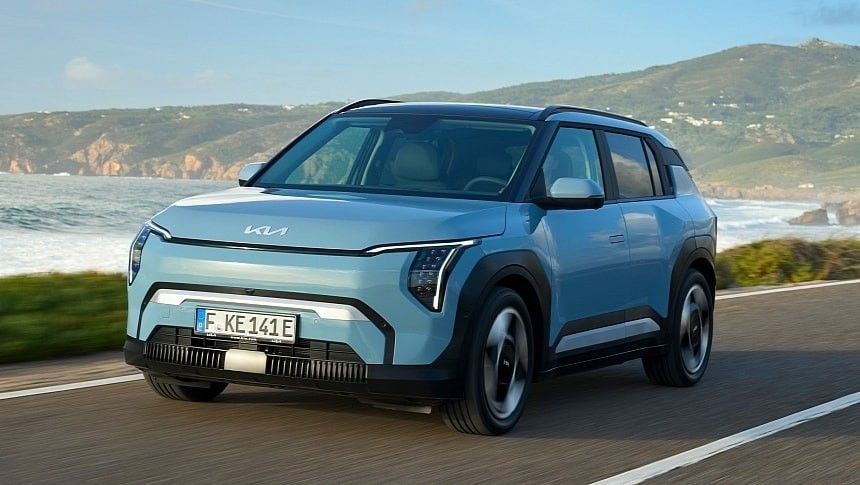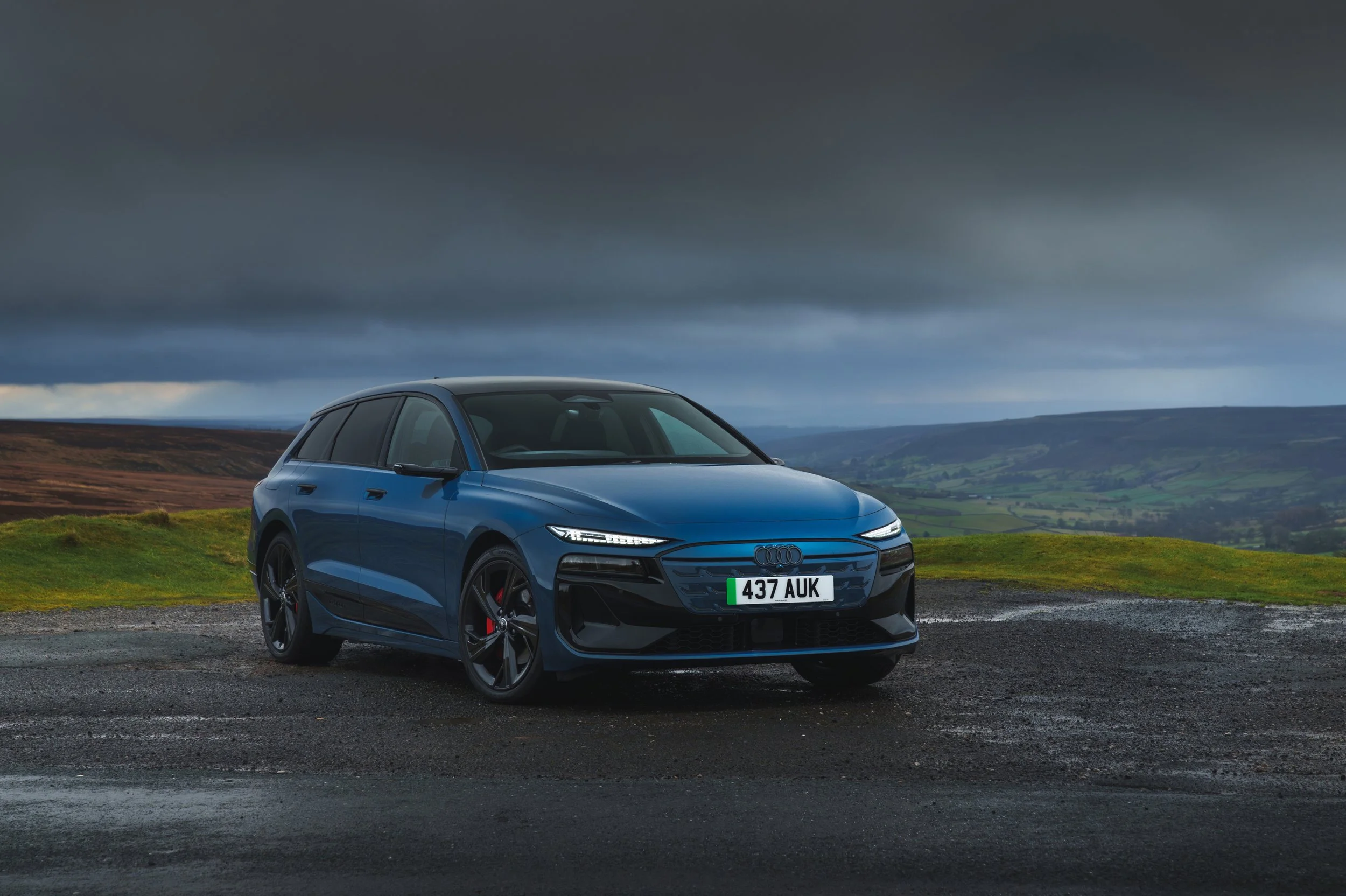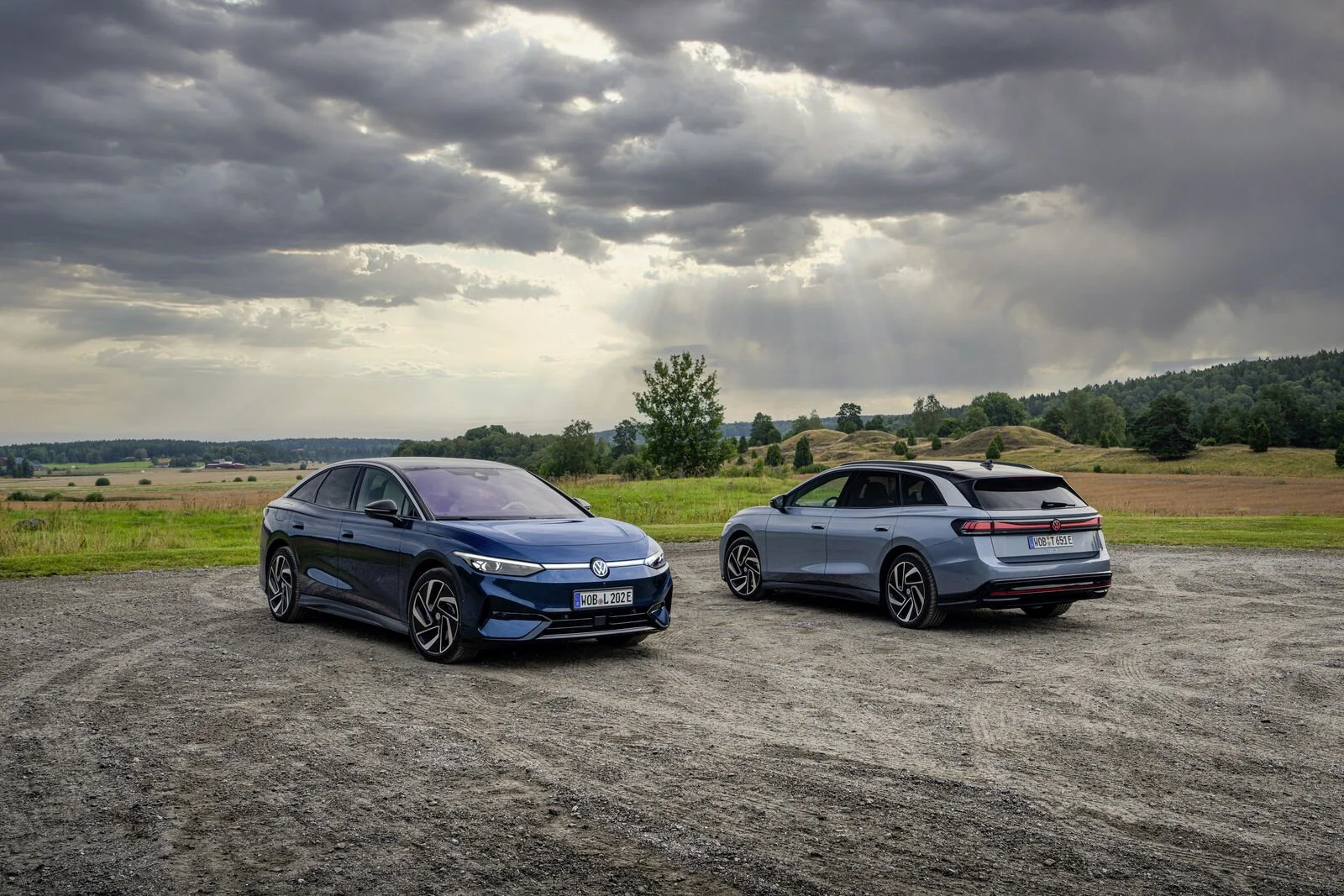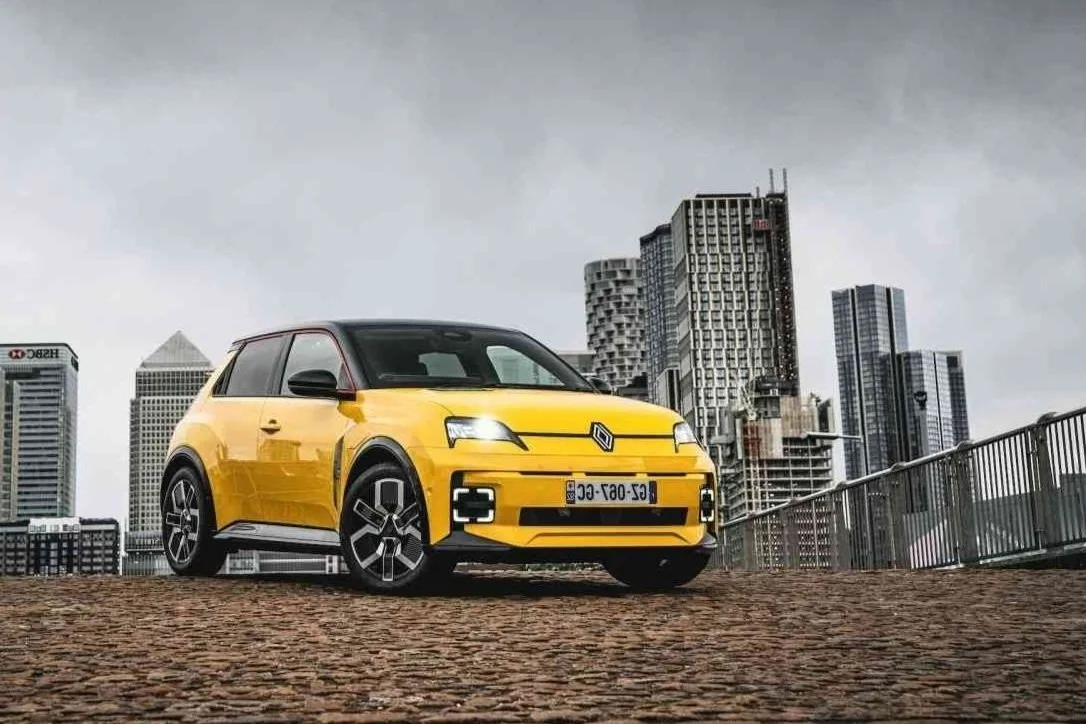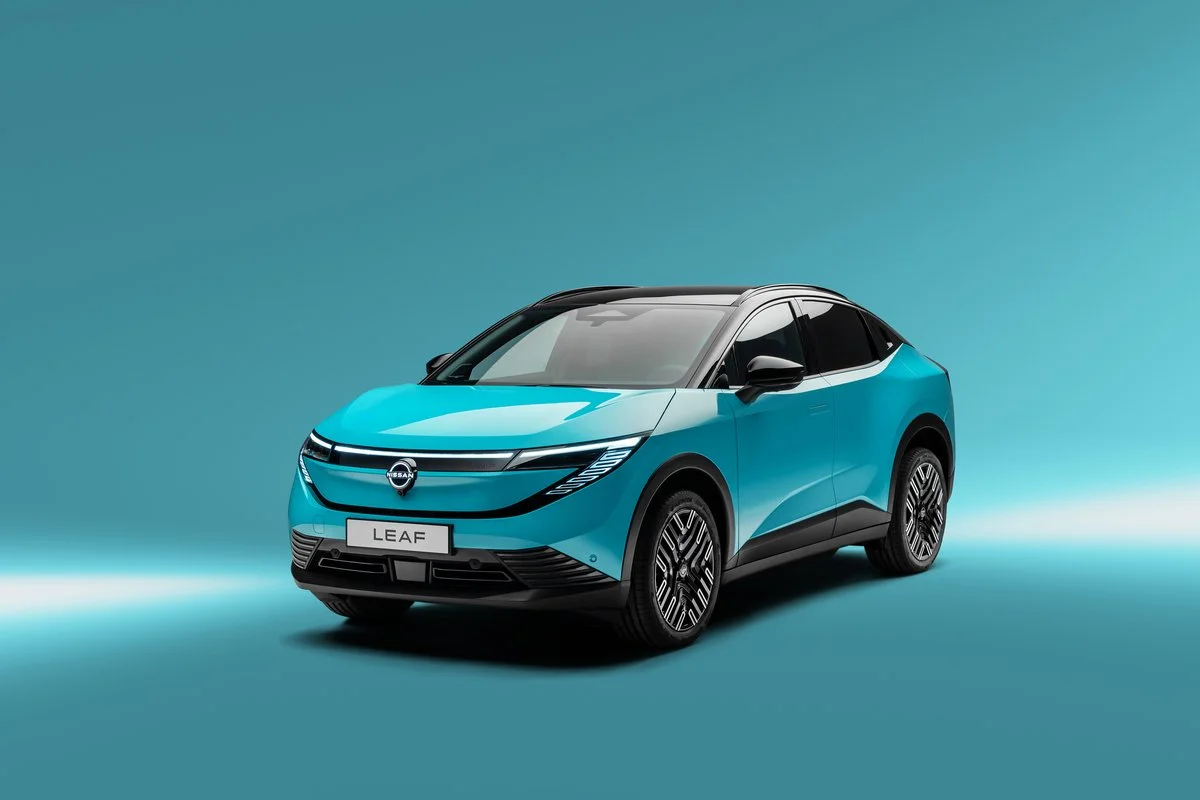Top 10 Most Anticipated EVs for 2026
Source: Volkswagen
The electric revolution shows no signs of slowing down. As we look ahead to 2026, manufacturers are preparing to launch some of their most compelling electric vehicles yet. From spacious family SUVs to sleek luxury sedans, the upcoming year promises to deliver electric cars that address every remaining concern about EV ownership.
What makes 2026 particularly exciting is the maturation of electric vehicle technology. We're seeing longer ranges, faster charging times, and more competitive pricing across the board. Combined with the UK's expanding charging infrastructure and the substantial savings available through salary sacrifice, there's never been a better time to make the switch to electric.
Let's explore the ten most anticipated electric vehicles that will define 2026.
Hyundai Ioniq 9: The Electric Family Hauler
Source: Hyundai
Hyundai is thinking big with the Ioniq 9, and we mean that quite literally. This three-row electric SUV takes everything brilliant about the award-winning Ioniq 5 and supersizes it for families who need proper space without compromising on their environmental credentials.
Expected to arrive in UK showrooms by mid-2026 with pricing around £60,000, the Ioniq 9 represents Hyundai's commitment to expanding their electric lineup beyond compact offerings. The Ioniq 9 shares its E-GMP platform with the smaller Ioniq 5 and the Kia EV9, which means it benefits from proven 800-volt architecture for ultra-rapid charging capabilities.
Technical Specifications
The Ioniq 9 is expected to feature a substantial battery pack, likely around 100kWh, delivering an estimated range of over 300 miles. That's enough to handle the school run, the weekly shop, and a trip to the grandparents without breaking a sweat. Thanks to its 800-volt electrical system, you'll be able to charge from 10-80% in roughly 20 minutes at compatible ultra-rapid chargers.
Power options will likely mirror the EV9, with single-motor rear-wheel-drive variants offering around 215hp, and dual-motor all-wheel-drive versions pushing closer to 380hp. That's proper performance for something that can seat seven adults in comfort.
Why It Matters
The best electric family cars category is about to get seriously competitive, and the Ioniq 9 looks set to be a front-runner. With its spacious interior, impressive technology, and Hyundai's excellent five-year warranty, this could be the perfect electric replacement for traditional diesel SUVs.
Kia EV3: Compact Brilliance
Source: Kia
Think of the Kia EV3 as the EV9's more nimble younger sibling – all the style and technology, just in a more city-friendly package. This compact SUV aims squarely at buyers who want cutting-edge electric vehicle technology without the footprint (or price tag) of larger models.
The EV3 officially launched in late 2024, but 2026 will see it truly hit its stride in the UK market as production ramps up and more variants become available. Starting from around £33,000, this represents Kia's push to make premium electric mobility accessible to a broader audience.
Range and Performance
With an impressive 81.4kWh battery delivering up to 372 miles of WLTP range, the EV3 effectively eliminates range anxiety for most drivers. That's London to Edinburgh with range to spare – genuinely impressive for a compact SUV. The smaller 58.3kWh variant still manages a respectable 255 miles, perfect for those who primarily drive in urban environments.
Power comes from a 201bhp front-mounted motor, delivering a 0-62mph time of 7.5 seconds. It's not setting any acceleration records, but it's more than adequate for overtaking slower traffic on motorways. The real party trick is the 800-volt electrical architecture, allowing 10-80% charging in just 30 minutes.
Design and Practicality
The EV3 inherits the angular, futuristic design language that made the EV9 such a head-turner. Sharp creases, distinctive LED lighting, and a confident stance make it look far more expensive than its price tag suggests. Inside, you'll find the same high-quality materials and dual-screen setup that grace its larger sibling, proving that affordable doesn't mean basic.
Polestar 3: Swedish Performance Meets Practicality
Source: Polestar
Polestar continues its meteoric rise in the premium electric segment with the Polestar 3, a performance SUV that proves you don't need to sacrifice sustainability for excitement. This is Polestar's first foray into the SUV market, and they've come out swinging with typical Scandinavian confidence.
Priced from £75,900, the Polestar 3 slots neatly between traditional premium SUVs and hypercar-priced electric exotics. For Polestar enthusiasts who've been clamouring for something more practical than the Polestar 2, this is the answer.
Power and Range
The Polestar 3 doesn't mess about. The standard dual-motor setup delivers 489hp and 620lb-ft of torque, launching this two-tonne SUV from 0-60mph in just 4.9 seconds. Want more? The Long Range Dual Motor Performance variant ups the ante to 517hp, shaving another tenth off that sprint time. It's properly quick, rivalling many sports cars while offering the practicality of a family SUV.
Range is equally impressive, with the massive 111kWh battery delivering up to 392 miles on the WLTP cycle. That's genuine long-distance capability, and with 250kW rapid charging, you can add 100 miles of range in roughly 10 minutes. Perfect for those cross-country trips to Scottish Highlands or Welsh valleys.
Design Philosophy
True to Polestar's minimalist ethos, the 3 features clean lines and restrained styling that ages gracefully rather than shouting for attention. The interior continues this philosophy with high-quality sustainable materials, a portrait-oriented touchscreen, and that signature floating centre console. It's what happens when Swedish design meets Silicon Valley technology, and the result is genuinely special.
For drivers seeking the best SUV electric cars, the Polestar 3 represents a compelling alternative to German rivals, with distinctive styling and impressive performance credentials.
Audi A6 e-tron: Executive Excellence Goes Electric
Source: Audi
Audi is bringing its A-game to the executive electric sedan segment with the A6 e-tron. This isn't just another electric car with an Audi badge slapped on – it's a ground-up reimagining of what a luxury sedan should be in the electric age.
Expected to start around £60,000 when it arrives in spring 2026, the A6 e-tron represents Audi's electric ambitions made manifest. Built on Audi's new PPE (Premium Platform Electric) architecture, which it shares with upcoming Porsche models, this is serious technology wrapped in elegant sheet metal.
Technical Excellence
The A6 e-tron will launch with several powertrain options. The entry-level rear-wheel-drive version uses a single motor producing around 270hp, perfect for those prioritizing efficiency and range. Want more punch? The dual-motor quattro variant pushes out approximately 382hp, delivering 0-62mph in under five seconds while still maintaining all-wheel-drive composure.
Range is where the A6 e-tron truly shines. Thanks to its slippery aerodynamics (a drag coefficient of just 0.22) and efficient powertrain, expect over 400 miles from the 100kWh battery pack. That's Tesla-beating range in a package that oozes traditional premium quality. The 800-volt electrical architecture means 270kW charging speeds, adding 186 miles in just 10 minutes.
Interior Innovation
Inside, you'll find Audi's latest MMI infotainment system spanning multiple curved displays, creating a digital cockpit that feels both futuristic and intuitive. The build quality is quintessentially Audi – solid, sophisticated, and packed with technology that actually works rather than gimmicks. Augmented reality head-up display, matrix LED headlights, and adaptive air suspension come as standard on higher trims.
For company car drivers, the A6 e-tron represents the perfect intersection of prestige and practicality, offering executive presence with minimal tax implications through salary sacrifice schemes.
Volkswagen ID.7: The People's Electric Sedan
Source: Volkswagen News Room
Volkswagen's ID.7 brings Passat-sized practicality to the electric sedan segment, proving that going electric doesn't mean compromising on space or versatility. This is VW's answer to the question: "What if we made a properly practical electric car for normal families?"
Arriving in the UK throughout 2026 with pricing expected from £55,000, the ID.7 sits at the larger, more premium end of Volkswagen's electric lineup. It's the electric replacement many Passat loyalists have been waiting for, offering similar space and comfort in a zero-emission package.
Practicality Meets Efficiency
The ID.7 impresses with its real-world practicality. A massive 532-litre boot (expanding to 1,586 litres with rear seats folded) means it's genuinely usable for family holidays, tip runs, and everything in between. The wheelbase stretches to nearly three metres, creating genuinely spacious rear accommodation – important when you're trying to keep teenagers happy on long journeys.
Range-wise, the 82kWh battery delivers up to 382 miles on the WLTP cycle in the single-motor Pro variant. That's proper long-distance capability, and VW's excellent route planning system makes the most of the 200kW charging capability. The GTX performance version adds a second motor for 340hp and all-wheel drive, while still managing over 300 miles between charges.
Refined Comfort
Where the ID.7 really shines is in its refinement. Double-glazed windows, adaptive dampers, and extensive sound insulation create a serene cabin environment. The clever climate control system uses air curtains to direct warm or cool air precisely where it's needed, improving efficiency while keeping occupants comfortable.
For those transitioning from traditional executive sedans, the ID.7 offers familiar practicality with cutting-edge electric technology, making it an ideal choice for conservative buyers ready to embrace electrification.
Renault 5: Retro Cool Meets Modern Electric
Source: Renault
Sometimes the best way forward is to look back. The Renault 5 E-Tech proves this beautifully, reimagining the iconic 1970s supermini as a thoroughly modern electric vehicle. It's automotive nostalgia done right – keeping the original's cheeky character while packing contemporary technology.
Landing in UK dealerships throughout 2026 with prices starting from around £25,000, the Renault 5 represents Renault's commitment to making electric mobility genuinely affordable and desirable. This isn't just another budget EV – it's a statement that sustainable driving can be fun, stylish, and accessible.
Compact But Capable
Don't let the retro styling fool you – underneath those gorgeous curves lies serious engineering. The entry-level version features a 40kWh battery delivering around 186 miles of range, perfect for urban driving and weekend escapes. Step up to the 52kWh variant, and you're looking at 248 miles – enough for most drivers' weekly needs without breaking a sweat.
Power ranges from a sensible 95hp in the base model to a punchier 150hp in the top-spec Alpine-influenced variant. The latter delivers genuinely entertaining performance, with a 0-62mph time of around 8 seconds and enough low-down torque to make city driving a pleasure. Built on Renault's CMF-BEV platform, it handles with the nimbleness you'd expect from a supermini.
Design That Delights
The design is where the Renault 5 truly excels. Those circular LED headlights, the distinctive side window graphic, and the two-tone paint options all pay homage to the original while looking thoroughly contemporary. Inside, you'll find sustainable materials, a digital dashboard, and that trademark French flair for creating interesting, liveable interiors.
For younger drivers or second-car households looking for affordable electric options, the Renault 5 offers style and substance in equal measure, proving that downsizing doesn't mean downgrading.
Next-Generation Nissan Leaf: Evolution of an Icon
Source: Nissan
The Nissan Leaf practically invented the mass-market electric car segment. Now, after selling over 650,000 units worldwide, it's time for a complete reinvention. The next-generation Leaf, arriving in 2026, represents everything Nissan has learned about electric vehicles over the past 15 years.
Expected pricing starts around £35,000, positioning the new Leaf competitively against rivals like the Volkswagen ID.3 and MG4. For Nissan enthusiasts who've been waiting for a thoroughly modern take on the Leaf formula, this is it.
Platform Revolution
Built on the same CMF-EV platform as the Ariya, the new Leaf sheds its predecessor's slightly awkward proportions for a more conventional and attractive silhouette. This platform switch brings significant benefits: more interior space, better packaging, improved handling dynamics, and crucially, the option of all-wheel drive.
Range takes a massive leap forward, with the base model expected to deliver around 300 miles and the long-range version pushing past 450km (280 miles). That's a huge improvement over the current generation, addressing one of the original Leaf's main criticisms. Rapid charging capabilities also see a boost, with 150kW charging becoming standard across the range.
Technology Update
Inside, expect Nissan's latest connected services, a larger touchscreen infotainment system, and significantly improved materials quality. ProPILOT Assist, Nissan's semi-autonomous driving technology, will be standard on higher trims, making motorway driving less stressful. The new Leaf finally brings the nameplate into line with modern expectations, while retaining the practicality and efficiency that made it popular.
For drivers seeking reliable electric cars with proven pedigree, the next-generation Leaf combines Nissan's extensive EV experience with cutting-edge technology.
Cadillac Vistiq: American Luxury Goes Electric
Source: Cadillac
Cadillac is bringing American luxury to the electric SUV segment with the Vistiq, a three-row behemoth that promises to shake up the premium electric market. This isn't your grandfather's Cadillac – it's a thoroughly modern take on luxury, wrapped in bold styling and packed with cutting-edge technology.
Pricing is expected to start around £70,000 when it arrives in the UK market in late 2026, positioning it against the Volvo EX90 and upcoming BMW iX3. The Vistiq represents Cadillac's renewed push into European markets, and they're coming armed with impressive credentials.
Size and Substance
The Vistiq slots between the Lyriq crossover and the massive Escalade IQ in Cadillac's electric lineup. It's properly large, offering genuine three-row seating for seven adults without resorting to the "occasional seats" compromise many rivals employ. Think spacious, American-sized interior dimensions with European refinement.
Built on GM's flexible Ultium platform, the Vistiq is expected to feature a 100kWh+ battery pack delivering over 300 miles of range. Dual-motor all-wheel drive will be standard, with power output likely exceeding 500hp. Despite its size, expect 0-60mph times in the mid-5-second range – proper performance for something that can haul the whole family and their luggage.
Technology Showcase
Inside, you'll find Cadillac's latest 33-inch curved display stretching across the dashboard, combining digital instruments and infotainment into one seamless unit. Super Cruise, Cadillac's hands-free driving system, will be standard, making long motorway journeys significantly less tiring. The brand's signature attention to detail extends to massage seats, a premium audio system, and ambient lighting that actually enhances rather than distracts.
For families seeking the best electric 7-seater cars, the Vistiq offers American space with European sophistication, all wrapped in striking bodywork.
BMW iX3: Bavarian Brilliance Refined
Source: BMW
BMW's second-generation iX3 represents a clean-sheet redesign of their compact luxury electric SUV. Learning from the first generation's reception, BMW has created something that's more distinctly electric while retaining the driving dynamics the brand is famous for.
Expected to arrive in autumn 2026 with pricing from £55,000, the new iX3 will compete directly with the Mercedes EQE SUV and Audi Q6 e-tron. BMW's electric ambitions are clear – this isn't just an X3 with batteries, it's a purpose-built electric vehicle that happens to wear a BMW badge.
Engineering Excellence
Built on BMW's Neue Klasse platform (new architecture designed specifically for electric vehicles), the iX3 benefits from optimized packaging and improved efficiency. The battery pack, likely around 85kWh, should deliver over 350 miles of range. Thanks to 800-volt electrical architecture, charging speeds will reach 270kW, adding significant range in just minutes.
Power will come from BMW's latest eDrive technology, with single-motor rear-wheel-drive variants offering around 300hp, and dual-motor M Sport versions pushing closer to 450hp. Expect 0-60mph times in the low 5-second range for the performance variants, with BMW's renowned handling dynamics translated brilliantly to the electric powertrain.
Sporting Character
Where BMW traditionally excels is in making their vehicles rewarding to drive, and the iX3 will be no exception. Adaptive suspension, rear-axle steering, and BMW's latest stability control systems ensure this large SUV handles like something much smaller. The interior will feature BMW's latest iDrive system, which has finally matured into something genuinely intuitive.
For driving enthusiasts who want sustainable performance, the iX3 promises to deliver BMW's traditional dynamic excellence in an electric package.
Rivian R2: American Adventure Goes Mainstream
Source:Rivian
Rivian made waves with their R1T pickup and R1S SUV, but both were firmly positioned as premium offerings. The R2 changes that equation, bringing Rivian's adventure-ready ethos to a more accessible price point and format. Think of it as the electric SUV for people who actually use their vehicles for adventures, not just to look adventurous at the supermarket.
Priced from around $45,000 in the US (approximately £35,000 in the UK when it arrives), the R2 represents a significant step toward mainstream electric vehicle adoption. It's roughly the size of a Volkswagen ID.4 but with distinctly American character and Rivian's off-road credibility baked in.
Capability and Range
Don't let the smaller size fool you – the R2 retains Rivian's go-anywhere philosophy. Standard all-wheel drive, generous ground clearance, and available off-road modes mean it's genuinely capable when the tarmac runs out. The approximately 80kWh battery pack should deliver over 300 miles of range, with rapid charging speeds ensuring you won't be stuck waiting around.
Power will come from Rivian's proven dual-motor setup, likely delivering around 400hp. That's more than enough for rapid acceleration and confident overtaking, while the low centre of gravity from battery placement ensures composed handling on-road. Rivian's signature "tank turn" capability (where the vehicle can pivot on its axis) might even make an appearance.
Adventure Ready Design
The R2's design language clearly draws from its larger siblings, with those distinctive vertical headlights and rugged proportions. Inside, expect durable, easy-to-clean materials designed for active lifestyles – this is a vehicle built for muddy boots and mountain bikes, not just school runs. Large cargo capacity, flexible seating configurations, and clever storage solutions make it genuinely practical.
For adventurous families seeking versatile electric vehicles, the R2 promises American capability at a more accessible price point.
Why Choose The Electric Car Scheme for Your 2026 EV?
Now that you've seen what 2026 has in store for electric vehicle enthusiasts, let's talk about the smartest way to get behind the wheel of these exciting new models. The Electric Car Scheme offers a compelling proposition that makes these anticipated EVs significantly more affordable than traditional leasing or purchasing.
Substantial Financial Savings
Through salary sacrifice, employees can save 20-50% on their electric car compared to personal leasing. Here's how it works: instead of paying for your EV from your take-home pay, the cost is deducted from your gross salary before tax and National Insurance contributions are calculated. With the current Benefit-in-Kind rate for electric vehicles sitting at just 3% for 2025/26, the tax implications are minimal compared to the substantial savings.
Let's look at a real example. A Polestar 3 with a retail price of approximately £75,900 might cost around £850 per month through traditional leasing. Through The Electric Car Scheme, that same vehicle could cost a 40% taxpayer just £550-600 per month after tax savings – a saving of over £3,000 annually. For higher earners, the savings are even more pronounced.
All-Inclusive Packages
Unlike traditional car leasing where you're juggling multiple contracts and suppliers, The Electric Car Scheme bundles everything into one simple monthly payment. This typically includes:
The vehicle lease itself
Comprehensive insurance
Regular servicing and maintenance
Breakdown cover
Tyre replacement
Road tax (VED)
Optional home charger installation
This all-inclusive approach means no unexpected costs or administrative headaches. Everything is sorted from day one, allowing you to simply enjoy driving your new electric car.
Complete Employer Protection
One common concern for employers offering salary sacrifice schemes is what happens if an employee leaves mid-contract. The Electric Car Scheme addresses this with Complete Employer Protection, which safeguards businesses from financial risks if employees resign, are made redundant, or otherwise leave the company. This protection starts from day one, with no exclusion periods, giving employers peace of mind when setting up the scheme.
For employees, this means your employer is more likely to approve your application, as they're fully protected from potential financial exposure.
Access to Latest Models
The Electric Car Scheme works with all major manufacturers and leasing companies, meaning you'll have access to these highly anticipated 2026 models as soon as they become available. Whether you're eyeing the futuristic Renault 5, the spacious Hyundai Ioniq 9, or the premium Audi A6 e-tron, you'll be able to configure and order through the scheme.
Environmental and Corporate Benefits
For employers, offering electric car salary sacrifice schemes demonstrates genuine commitment to sustainability and corporate social responsibility. It helps achieve ESG (Environmental, Social, and Governance) targets while providing a valuable employee benefit that aids retention and recruitment.
For employees, making the switch to electric through salary sacrifice means you're reducing your carbon footprint without financial penalty – in fact, you're saving money while being more environmentally responsible. It's a rare win-win scenario.
The Charge Scheme Addition
Beyond the vehicle itself, The Electric Car Scheme now offers The Charge Scheme, allowing employees to salary sacrifice their EV charging costs as well. This means you can save 20-50% on charging whether you're at home, at work, or using public charge points. When combined with your vehicle savings, this creates a comprehensive cost-reduction package that makes electric vehicle ownership remarkably affordable.
Simple Application Process
Getting started with The Electric Car Scheme is straightforward:
Check eligibility - Your employer needs to be signed up with The Electric Car Scheme (if they're not, you can refer them)
Browse available cars - Explore the full range of electric vehicles available through the scheme
Get a quote - See your exact monthly cost after tax savings
Configure your car - Choose your preferred specifications and options
Complete the application - Simple online process taking just minutes
Order placed - Your car is ordered and you'll be kept updated throughout
Most applications are approved within 48 hours, and once your car is delivered, you're ready to start enjoying the benefits of electric driving with substantial savings.
Real-World Example
Consider a typical scenario: Sarah earns £50,000 annually and wants the new Kia EV3 Long Range, which retails at approximately £40,000. Through traditional personal leasing, she might pay £450-500 per month. Through The Electric Car Scheme:
Gross monthly salary sacrifice: £584
Income tax savings (40% rate): £234
National Insurance savings: £12
Benefit-in-Kind tax (3%): £55
Net monthly cost: £393
Sarah saves approximately £100-150 per month compared to personal leasing, equating to £1,200-1,800 annually. Over a typical three-year lease, that's £3,600-5,400 in savings – enough for a family holiday or substantial home improvements.
Making the Switch in 2026
The 2026 electric vehicle lineup represents a watershed moment for the automotive industry. We're seeing genuine diversity in body styles, price points, and capabilities, with something for every type of driver. From the affordable charm of the Renault 5 to the luxurious presence of the Cadillac Vistiq, electric vehicles are finally fulfilling their promise of being viable alternatives for all drivers, not just early adopters.
Addressing Common Concerns
Many prospective EV drivers still have lingering concerns about making the switch. Let's address the most common ones:
Range Anxiety: With models like the Audi A6 e-tron offering over 400 miles and even compact options like the Kia EV3 delivering 372 miles, range is increasingly a non-issue. The average UK driver covers just 20 miles daily, meaning most people could charge weekly rather than daily. For those longer journeys, the UK's charging infrastructure continues expanding rapidly, with over 45,000 public charge points now available.
Charging Times: Modern EVs benefit from rapid charging technology. The 800-volt architecture in vehicles like the Ioniq 9 and Kia EV3 means 10-80% charges in 20-30 minutes – about the time you'd spend on a coffee break during a long journey. For home charging, most owners simply plug in overnight, waking to a full "tank" every morning.
Initial Cost: This is where electric car salary sacrifice schemes truly shine. By spreading the cost through pre-tax salary and taking advantage of low BiK rates, even premium EVs become remarkably affordable. Combined with lower running costs (electricity typically costs 3-5 times less per mile than petrol), the total cost of ownership often favours electric.
Resale Values: As the used EV market matures and battery technology proves its longevity, resale values are stabilizing. Most EV batteries retain 80-90% of their original capacity after 10 years, far exceeding early predictions. For salary sacrifice customers, this concern is largely irrelevant as you're leasing rather than purchasing.
The Perfect Time to Switch
Several factors make 2026 an ideal year to transition to electric:
Model Choice: The sheer variety of vehicles available means there's genuinely something for everyone, from compact city cars to spacious family SUVs and luxury sedans.
Financial Incentives: The current 3% BiK rate represents substantial tax advantages, and while rates will gradually increase in future years, they remain far below the equivalent for combustion vehicles.
Improved Technology: Range anxiety is essentially solved, charging infrastructure is robust, and battery technology has matured significantly.
Environmental Imperative: With the UK committed to net-zero emissions by 2050 and new petrol/diesel car sales banned from 2035, making the switch now future-proofs your mobility.
Running Cost Advantages: Electric cars cost significantly less to run and maintain than conventional vehicles, with no oil changes, fewer brake replacements (thanks to regenerative braking), and cheaper "fuel" costs.
Getting Started
If you're excited about any of these upcoming 2026 models and want to explore how much you could save through The Electric Car Scheme, the process is simple:
For Employees:
Check if your employer offers The Electric Car Scheme
If not, refer them – implementation is quick and there's no cost to employers
Browse available vehicles and get instant quotes showing your post-tax costs
Complete a simple online application
Enjoy your new electric car with substantial savings
For Employers:
Contact The Electric Car Scheme to discuss implementation
Benefit from Complete Employer Protection from day one
Offer a valuable employee benefit that costs nothing to provide
Support your ESG and sustainability goals
Improve employee retention and recruitment
Looking Ahead
The electric vehicle revolution is no longer coming – it's here. The 2026 lineup demonstrates how far the industry has progressed in just a few years, with vehicles that match or exceed their combustion equivalents in every meaningful metric while offering a superior ownership experience.
Whether you're drawn to the retro charm of the Renault 5, the practical brilliance of the Volkswagen ID.7, the performance of the Polestar 3, or the spacious luxury of the Hyundai Ioniq 9, there's an electric vehicle perfectly suited to your needs. And with The Electric Car Scheme, these exciting new models are more affordable than ever.
Conclusion
The 2026 electric vehicle market represents the maturation of EV technology, with manufacturers delivering vehicles that address every conceivable buyer need. From affordable urban runabouts to luxury performance machines, the breadth of choice is unprecedented. Combined with improving charging infrastructure, longer ranges, and faster charging times, the barriers to EV adoption are crumbling.
For UK drivers considering making the switch, salary sacrifice schemes like The Electric Car Scheme offer a financially compelling route to electric vehicle ownership. With savings of 20-50% compared to traditional leasing and the current 3% BiK rate, there's never been a better time to embrace electric mobility.
The future of automotive transport is electric, and 2026 will be the year that becomes undeniable. Whether you're motivated by environmental concerns, running cost savings, or simply the desire to drive the latest technology, these anticipated EVs deliver on all fronts. The only question remaining is: which one will you choose?
Ready to make the switch? Browse available electric cars through The Electric Car Scheme or contact our team to discover exactly how much you could save on your perfect 2026 EV.
The Electric Car Scheme makes electric vehicle ownership accessible and affordable through salary sacrifice, helping thousands of UK drivers save 20-50% on their electric cars while supporting the transition to sustainable transport.
Are you an employer?
BOOK A DEMOAre you an employee?
SEE AVAILABLE CARSYou might also like…
Last updated: 04/11/2025
Our pricing is based on data collected from The Electric Car Scheme quote tool. All final pricing is inclusive of VAT. All prices above are based on the following lease terms; 10,000 miles pa, 36 months, and are inclusive of Maintenance and Breakdown Cover. The Electric Car Scheme’s terms and conditions apply. All deals are subject to credit approval and availability. All deals are subject to excess mileage and damage charges. Prices are calculated based on the following tax saving assumptions; England & Wales, 40% tax rate. The above prices were calculated using a flat payment profile. The Electric Car Scheme Limited provides services for the administration of your salary sacrifice employee benefits. The Electric Car Scheme Holdings Limited is a member of the BVRLA (10608), is authorised and regulated by the FCA under FRN 968270, is an Appointed Representative of Marshall Management Services Ltd under FRN 667174, and is a credit broker and not a lender or insurance provider.
Copyright and Image Usage: All images used on this website are either licensed for commercial use or used with express permission from the copyright holders, in compliance with UK and EU copyright law. We are committed to respecting intellectual property rights and maintaining full compliance with applicable regulations. If you have any questions or concerns regarding image usage or copyright matters, please contact us at marketing@electriccarscheme.com and we will address them promptly.



